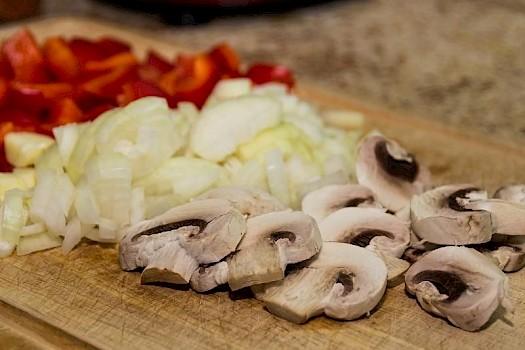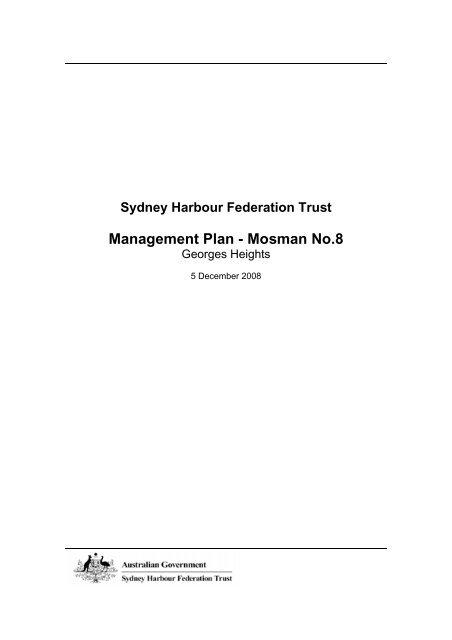A Turkish businessman and his associates orchestrated an elaborate scheme to sell fraudulent organic grain in the US market through a web of companies, leading to their indictment in a federal criminal complaint and a civil lawsuit in US courts. At the heart of the fraud conspiracy was the late Turkish businessman Hakan Bahçeci, along with his associates and companies spanning Turkey, the United Arab Emirates (UAE) and the US. A network of companies operated by Bahçeci and his associates played a role in the supply chain of various agricultural commodities, encompassing grain, beans, soybeans, feed, pulses, dry food, meat and chicken. Bahçeci, who passed away in May 2020, served as a longstanding representative of the government of Turkish President Recep Tayyip Erdogan in the UAE from 2011 to 2017, holding the position of president of the Dubai-based Turkish Business Council (also known as Turkish Business Council Dubai & Northern Emirates, TBC). This council is affiliated with Turkey’s Foreign Economic Relations Board (DEİK), operating under the Ministry of Trade. Born in the predominantly Kurdish province of Diyarbakir, Bahçeci was celebrated as a successful entrepreneur for rapidly transforming his small food brokerage firm into a global company operating in 24 countries following the relocation of its operations to Dubai in 1996. His companies boasted an annual turnover reported to be around a billion dollars. However, the criminal and civil lawsuits filed against him and his associates in US courts paint a starkly different picture, a legacy diametrically opposed to the narrative portrayed in the Turkish media, which is predominantly under the control of the Erdogan government. According to the indictment filed with the United States District Court for the District of Maryland on August 4, 2022, two Dubai-based companies, Hakan Agro DMCC and Hakan Organics DMCC, were implicated in purchasing non-organic soybeans and corn from Eastern Europe, which were then fraudulently labeled as organic before being shipped to the US. Hakan Agro DMCC served as the flagship company under Bahçeci’s leadership, while Hakan Organics DMCC appears to have been operating as its subsidiary within what was identified as the Hakan Group, which includes companies both in Turkey and the UAE. Turkey-based businessmen Göksal Beyaz, Nuray Beyaz and Mustafa Çakıroğlu played a facilitating role in the fraudulent activities according to the federal complaint, and they were listed as defendants in the indictment. According to the case file, the conspirators charged inflated prices for the grain they sold to the US under false organic certification, ultimately pocketing millions in illicit profits. Among the instances uncovered by US federal investigators as fraudulent was the purchase of non-organic, non-GMO (genetically modified organism) soybeans from Ukraine for $423 per metric ton (MT) in 2015, subsequently sold to a US customer as organic soybeans for $614/MT, resulting in a total transaction exceeding $4.9 million. In early 2016 the suspects orchestrated the purchase of non-organic corn for $168/MT, arranging for its delivery to Constanta, Romania. At the same time they arranged to sell the corn from Constanta through Baltimore as organic corn for $247/MT. Invoices for this falsely labeled corn amounted to over $3.3 million. In late 2016 the suspects shipped 16,250 MT of non-organic soybeans falsely labeled as organic from Turkey to the US, where they were sold for over $10 million. In early 2017 the suspects arranged for 21,000 MT of non-organic corn to be shipped to the US, falsely labeled as organic. Invoices for the falsely labeled corn totaled over $6.7 million. Additionally, in the same year, the suspects arranged for a shipment of non-organic soybeans from Turkey to Baltimore, falsely labeled as organic soybeans. The suspects were charged with conspiracy to defraud the US, smuggling goods into the US, wire fraud and making false statements. The case was investigated by the US Department of Agriculture (USDA) Office of Inspector General. Senior trial attorney Adam Cullman of the Environment and Natural Resources Division’s Environmental Crimes Section, along with Assistant US Attorney LaRai Everett for the District of Maryland, are prosecuting the case. Most individuals and companies named in the federal criminal complaint were also subjects of a civil lawsuit filed by the Maryland-based US company Global Natural, LLC in October 2017. The civil lawsuit made similar allegations against Bahçeci’s companies and associates. According to the complaint, Global Natural sought damages for fraud, breach of contract, conspiracy and negligent misrepresentation from Bahçeci, his firm Hakan Agro DMCC and its subsidiary Hakan Organics DMCC in the UAE as well as affiliated company Beyaz Agro located in the Turkish province of Gaziantep and run by Göksal Beyaz. Additionally, US-based Agropex International, Inc., which is affiliated with Hakan and run by his ex-wife, was also named in the complaint. It all began when Global Natural, confronted with a shortage of organic feed grains crucial for US farmers in producing organic consumer goods such as chicken, milk and eggs, entered into a trade agency agreement in November 2016 with Bahçeci and his partners. The agreement concerned the procurement organic corn and soybeans sourced from Eastern Europe and Turkey. Bahçeci and his associates would sell the products to Agropex, a Virginia-based company run by his ex-wife Ashley Anderson Bahçeci in the US. Agropex would then sell these products to Global Natural’s clients. Doubts regarding the authenticity of the organic feed grain surfaced in February 2017 when DFI Organics, a client of Global Natural, raised concerns about two shipments — one from Romania and the other from Ukraine. DFI Organics sought clarification regarding the certificates and questioned whether the grain was indeed organic. Bahçeci’s associate Göksel, using email addresses from Hakanfoods.com, a corporate website that belongs to Hakan Group and operates under Hakan Agro DMCC, in his communications, declined to share documentation and attributed the situation to a plot orchestrated by a competitor, Tiryaki Agro Gıda Sanayi ve Ticaret A.Ş., a multi-billion dollar Turkish company based in Istanbul. In March 2017 Sunrise Foods International, another customer of Global Natural, refused to accept a shipment from Agropex. They cited Turkish government documents indicating that the soybeans sold to them were not organic and requested reimbursement. During this period USDA officials were also investigating the allegations, engaging in meetings with managers from Global Natural and Agropex. The evidence collected by USDA strongly suggested that Hakan Organics DMCC and its associates were indeed selling non-organic products fraudulently labeled as organic. In April 2017 the USDA issued a notice of non-compliance to Beyaz. The notice stated, “The actions of Göksal Beyaz at Beyaz Agro, acting as an agent of Hakan Organics DMCC (Hakan Organics), and through Agropex International (Agropex), to represent fumigated, non-organic soybeans as organic for sale in the United States are knowing and willful violations of the USDA organic regulations.” According to the USDA investigation, Bahçeci and his associates purchased non-organic soybeans from Ukraine, stored them in a warehouse in Turkey and obtained organic certification by submitting false documentation to the accredited certifying agent Kiwa-BCS. Based on the new evidence presented in the notice of non-compliance, Global Natural terminated its contract with Hakan Organics DMCC and Beyaz. The Washington Post reported the fraudulent sale of non-organic grain by Hakan Organics DMCC and associates on May 12, 2017. The Post revealed that non-organic soybeans, which had been fumigated with a pesticide called aluminum phosphide in Ukraine, ended up in the US via Turkey and were falsely labeled as organic, resulting in a $4 million windfall. In letters to USDA officials as well as certifying agents in May 2017, Beyaz acknowledged that the soybeans imported to the US were not organic. This admission prompted the USDA to revoke its certification for the company. The USDA also revoked certification of Hakan Organics DMCC in connection with the fraud. In its appeal, Hakan Organics DMCC claimed that it had nothing to do with Beyaz Agro and that the company was not authorized to do business in the US on behalf of Hakan Organics DMCC. However, the USDA rejected the appeal, citing multiple pieces of evidence demonstrating that Beyaz had indeed acted on behalf of Hakan Organics. In a $20 million lawsuit filed by Global Natural, it was revealed that Bahçeci was the mastermind behind the entire scheme and that others used official email addresses assigned to Bahçeci’s Hakan Organics DMCC in their communications with Global Natural’s managers, even though they also represented other companies such as Beyaz Agro and Agropex. The damages inflicted on Global Natural’s finances and reputation were significant. The company appears to have ceased operations in late 2017 and did not pursue its legal challenge against Agropex, which was dismissed in August 2018. A default judgment was entered against Global Natural by the court. Maryland state records indicate that Global Natural LLC was forfeited in the state in October 2019, meaning it ceased to exist. Agropex International, Inc. did not survive much longer, either, as it was dissolved in December 2023 according to Virginia state records. Some changes occurred in Turkey regarding Hakan Group’s Turkish subsidiary and its associates. According to the Turkish government’s trade registry records, Bahçeci initially established his business in 1989 under the name of Hakan Gıda Dış Ticaret Limited Şirketi in Mersin. The company was split in 2022, with some of its assets transferred to a newly established company, Hakan HKD Dış Ticaret A.Ş., in December 2023. Hakan HKD is owned by Nazım Yılmaz Bahçeci, the brother of the late Hakan Bahçeci. Their father, Alettin Bahçeci, oversees Hakan Agro’s storage facilities in Turkey’s bustling port city of Mersin in the eastern Mediterranean and reportedly serves as the CEO of the Hakan Group. Trade registry data indicates that Beyaz Agro, founded in Turkey’s Gaziantep province by Göksel Beyaz in December 2012, was closed in February 2020 after its merger with a company called BioAgro Gıda Limited Şirketi. This company, also owned by Beyaz, was established in August 2016. According to the available information, there is a lack of detail regarding whether the suspects or companies involved in the fraudulent trade of organic foods were investigated in Turkey. There is also no public record indicating if these companies also sold non-organic foods to the Turkish market under false pretenses. It is worth noting that the owners of the Hakan Group appear to have close ties to Turkish government officials, which may have influenced or protected the company and its owners from any investigations in Turkey. Abdullah Bozkurt, a Middle East Forum Writing Fellow, is a Sweden-based investigative journalist and analyst who runs the Nordic Research and Monitoring Network and is chairman of the Stockholm Center for Freedom.
This content was originally published here.




















